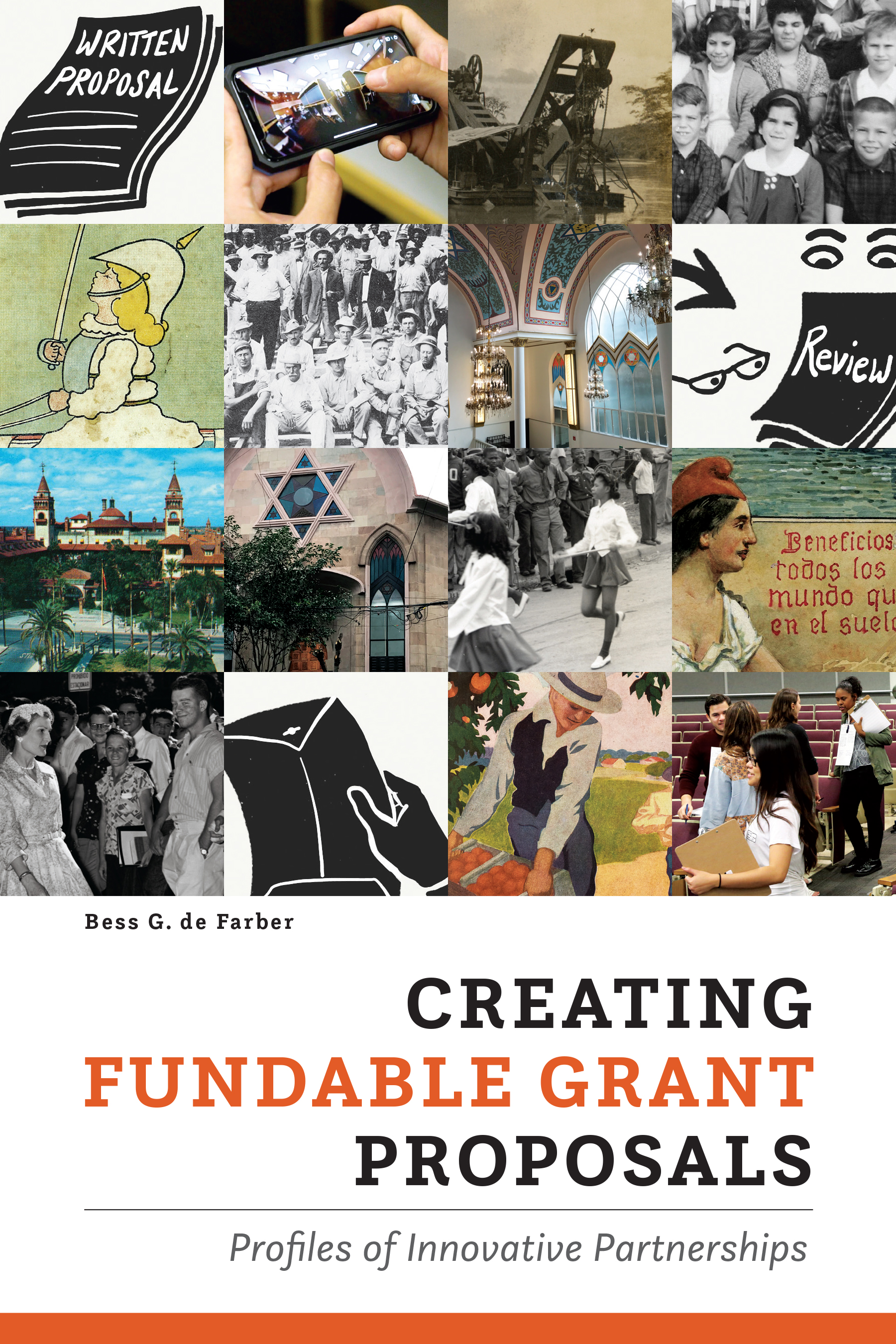Primary tabs
You don't need to be an ALA Member to purchase from the ALA Store, but you'll be asked to create an online account/profile during checkout to proceed. This Web Account is for both Members and non-Members. Note that your ALA Member discount will be applied at the final step of the checkout process.
If you are Tax-Exempt, please verify that your account is currently set up as exempt before placing your order, as our new fulfillment center will need current documentation. Learn how to verify here.
- Description
- Table of Contents
- About the author
- Reviews
Grant money can make all the difference in developing new services, creating worldwide access to your unique collections, or enabling you to showcase awarded projects that advance your career. But competition for grants is as fierce as ever. To get a leg up, you need an insider who will share proven strategies for success. In this book, Bess G. de Farber, who has led the management of 187 awarded grant projects from under $5,000 to more than $1 million at the University of Florida, does just that. Drawing from profiles of 57 grant proposals, sponsored by 31 funders including federal agencies, foundations, and library organizations, her detailed 10-step workflow guides you through submitting and managing collaborative grant proposals. You will learn
- about successful projects related to digitization, preservation, research, technology, and more, including such initiatives as digital publishing on Black life, audio of the sounds of the Panama Canal, digitization of scientific fieldwork from the 1960s, and supporting learning with smart pens;
- the crucial components of a fundable project plan, with a particular emphasis on collaboration, both internally and with external organizations;
- the fundamentals of crafting your own grant proposal, using as models the successful grant proposals included in full, with budgets, as weblinks;
- how to recruit partners and shape ideas;
- ways to incorporate assets and supporting materials into your plan; and
- advice on anticipating the unexpected, how to stay in communication with your partners while the proposal is being reviewed, what to do once you receive notification, and fostering a culture of grantsmanship at your institution.
By lifting the veil on the mysteries of grantseeking, this book will equip you with the knowledge and tools you need to create fundable grant proposals.
Examination copies are available for instructors who are interested in adopting this title for course use.
Acknowledgments
Preface
Chapter 1: Creating Collaborative Grant Partnerships
Chapter 2: Grant Partnership Proposals up to $5,000
Chapter 3: Grant Partnership Proposals from $5,001 to $25,000
Chapter 4: Grant Partnership Proposals from $25,001 to $100,000
Chapter 5: Grant Partnership Proposals over $100,000
Chapter 6: Ten Steps for Successful Grantseeking with Partners
Index
Bess G. de Farber
Bess G. de Farber serves as grantseeking and collaboration development consultant at ASK Associates, Inc. She has had four careers: as a musician and arts administrator; as a program officer managing grant awards for arts and cultural, social services, and human and race relations; as a nonprofit management consultant; and as an academic research development professional. She has provided collaborative grantseeking training to thousands of library staff, nonprofit and academic professionals, artists, and university students in the past 32 years, and has led efforts to secure millions for nonprofits and academic libraries. Her CoLAB Workshops have served more than 3,600 participants from a minimum of 14 to over 120 per workshop. Bess is author of Creating Fundable Grant Proposals: Profiles of Innovative Partnerships and coauthor of Collaborating with Strangers: Facilitating Workshops in Libraries, Classes, and Nonprofits. She holds a Bachelor of Music from the University of Southern California, and a Master of Nonprofit Management from Florida Atlantic University. Learn more about her work at her website.
”Chapters are organized by amount of grant award and open with a summary of the project types (e.g., digitization, collection development) and grant programs/sponsors, making it easy for readers to locate examples of particular relevance ... This book will be most applicable to grantseekers at large academic institutions; however, its lessons are applicable to any library professional seeking grant funding.”
— Booklist
”An easy- and enjoyable-to-read walk through grants, with well detailed examples of how to navigate work with partners as well as funders ... I think anyone working in a library setting and wanting a good foundation in grant getting should have this book as a reference. I also think faculty in the humanities can benefit from this book.”
— Beth Hodges, Director, Office of Research Development, Florida State University
”A must-have guide for any librarian, academic, or non-profit individual seeking to bolster their community’s resources and foster collaboration between stakeholders ... The author creates a holistic picture of the grantseeking process that encourages the reader to seek out solvable problems within their community and collaborate with partners to actualize proposed project goals. Furthermore, the manual’s straightforward format coupled with the author’s near-conversational tone marks it as an accessible resource for disseminating knowledge to grantseekers of all backgrounds.”
— Abby Lovett, WorldCat
”An invaluable resource to any professional interested in developing collaborative grant-seeking activities and partnerships within their organization and network. While it is a useful resource for professionals from various disciplines, it is particularly relevant for library, archives, and information professionals who are involved or interested in grant-seeking ... Each chapter ends with a bullet list of takeaways that entail useful tips for writing grant proposals supported by evidence of the proposals detailed throughout the chapter, as well as references with links that direct readers to the full proposals presented in each chapter.”
— Rebecca Saunders, Hunter Library, Western Carolina University



